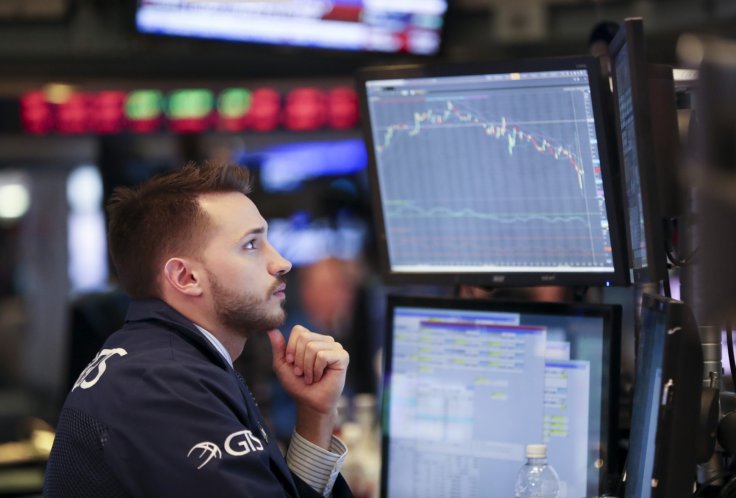
Global stock markets fell for a third straight day on Monday, hurt by worries over the escalation of trade disputes between world powers and a deepening sell-off across emerging market currencies.
European shares mostly opened lower .GDAXI .FCHI while in Asia, MSCI's broadest index of shares outside Japan .MIAPJ0000PUS and Tokyo's blue-chip Nikkei .N225 shed about 0.7 percent each.
A holiday in the United States subdued trading activity.
Still, MSCI's All-Country World Index, .MIWD00000PUS, a gauge of 47 markets, fell 0.2 percent and the main emerging equity index fell 0.5 percent .MSCIEF, bearing the brunt of global trade fears.
U.S. President Donald Trump said at the weekend there was no need to keep Canada in the North American Free Trade Agreement and warned Congress not to meddle with the trade talks.
Worries about U.S. tensions with China were also kept alive by a report last week that Trump had told aides he was ready to impose tariffs on an additional $200 billion worth of imports from China as soon as a public comment period on the plan ends on Thursday.
That would be a major escalation given the United States has already applied tariffs on $50 billion of exports from China.
There was also bad news on the economic data front as euro zone manufacturing growth slowed to a near two-year low in August as amid growing trade war fears, a survey showed on Monday.
"As we head into a new week and month, trade concerns will remain front and center of investors' minds, along with increasing concerns about stability in emerging markets, after the sharp declines seen in Argentina and Turkey's currency last week," said Michael Hewson, chief market analyst at CMC Markets.
Across emerging markets, turbulence continued. The Indonesian rupiah fell IDR=ID to the lowest levels against the dollar since the country's economic crisis two decades ago, and the central bank said it was intervening in foreign exchange and bond markets.
However, Turkey's lira, at the center of emerging market turmoil in recent weeks, firmed on Monday to 6.56 per dollar TRYTOM=D3, lifted by a statement from the central bank which said it would "adjust" its monetary stance at its upcoming Sept. 13 meeting.
Inflation was above expectations in August, surging 18 percent and touching the highest since December 2003.
"This morning's inflation number was very high and the authorities still haven't got a credible strategy to deal with that," said Chris Scicluna, head of economic research at Daiwa Capital Markets.
Turkish Finance Minister Berat Albayrak told Reuters that the central bank was independent of government and it would take all necessary steps to combat inflation.
STERLING TROUBLE
Among major currencies, the British pound stood out as the big underperformer, hurt by comments by the European Union's chief Brexit negotiator, Michel Barnier, that he was "strongly opposed" to British proposals on future trade ties after it leaves the EU.
Weak manufacturing survey data also weighed on sterling, which fell 0.5 percent to $1.29 GBP=D3 and weakened 0.6 percent against the euro EURGBP=D3 to 90.11 pence
The weakness in the pound however helped lift London's blue-chip FTSE rose 0.7 percent .FTSE.
The dollar hovered near one-week highs against a basket of currencies .DXY, lifted by the trade worries.
For Reuters Live Markets blog on European and UK stock markets open a news window on Reuters Eikon by pressing F9 and type in 'Live Markets' in the search bar
Global trade concerns supported the U.S. dollar, with dollar index .DXY nearing its highest level since Aug. 27. It has gained nearly 7 percent since mid-April when trade tensions first arose.
But gains were muted - safe-haven currencies such as the Swiss franc CHF=EBS and the Japanese yen JPY=EBS were supported against higher-yielding rivals.
"The demand for the protective yen and the dollar can remain the predominant theme of this week in anticipation of important news on the labor market and the announcement of Trump tariffs," analysts at FXPro said in a note to clients.
Major economic U.S. data due this week, such as a manufacturing survey on Tuesday and an employment report on Friday, is expected to show solid conditions.
In European bond markets, Italian bond yields edged lower IT10YT=RR after Fitch Ratings left its credit rating unchanged at BBB, revising only its outlook to negative.
Elsewhere, oil prices steadied on Monday, weighed down by rising supply from OPEC and the United States but supported by concerns that falling Iranian output will tighten markets once U.S. sanctions bite from November.
Brent crude oil LCOc1 was up 23 cents at $77.87 a barrel. U.S. crude CLc1 was unchanged at $69.80.








